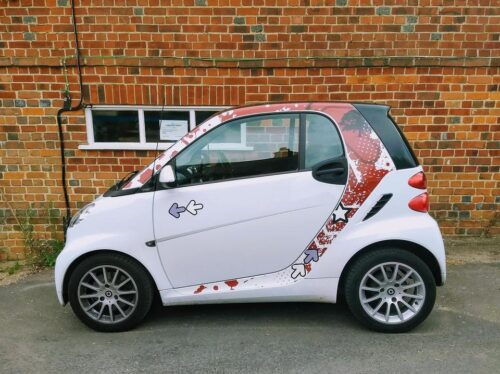Last Updated on January 26, 2023 by HodgePodgeDays
Road trips are uniquely fun ways in which to experience the world. The open road is an invitation to not just enjoy landscapes, but to participate in them. The UK is an excellent candidate for road tripping, with a great many incredible routes to follow from the North Coast 500 in Scotland to the Wild Atlantic Way in Ireland.
But road trips also require an immense amount of careful planning – particularly if you are planning overnight stops, and even more so if these stops involve camping of any kind. You need to be especially fastidious when it comes to preparing your car, as even a minor mechanical setback could throw your trip schedule off entirely.
With this in mind, it is key that automotive preparations form a major part of your pre-trip planning. What are some simple ways you can make sure your car is road-ready for your next trip, to reduce the likelihood of accidents or breakdowns?

Check Fluid Levels
Your cars fluids, needless to say, are essential to its performance and longevity. Your engine oil in particular requires checking prior to departure, to ensure you are not running low and that you do not need to replace it altogether. Gummy, gunky oil can cause serious problems in the engine – problems that cannot be fixed with ease in the middle of a rural road trip. You should also make sure to check your brake fluid and radiator coolant to ensure they are at optimal levels.
Check the Battery
A dead battery is the bane of any road trip, and a problem easily avoided by a simple pre-trip check. Car batteries provide 12.6 volts at full charge, and will measure above this when your car is running. If your car battery measures below 12 volts when your car is off, your best bet would be to replace it altogether – in so doing eliminating the chance that your battery will go flat of its own accord.
Check the Tyres
Next, you should ensure that your tyres are in good nick for the trip ahead. Make sure that their tread depths measure well above the legal minimum of 1.6mm, so as not to wear your tyres below the limit mid-trip. It can also be good practice to pump your tyres up to optimal air pressure the day before you leave, so as to detect any punctures ahead of setting off.
Emergency Kit
Lastly, even relatively short road trips can present dangerous situations, whether an unexpected breakdown or an accident involving another car. Keeping an emergency kit packed and in the boot of your car can help you meet such challenges much easier. Your kit might include a first aid kit for tending to injuries, tools for replacing tyres, blankets for warmth, food and drink for nourishment and spare batteries for charging electronic devices.
This is a contributed post.
